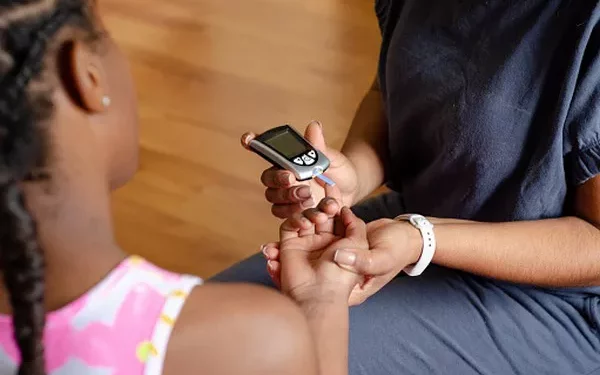Diabetes mellitus, a chronic metabolic disorder characterized by elevated blood glucose levels, has reached epidemic proportions globally. According to the International Diabetes Federation (IDF), approximately 463 million adults aged 20-79 years were living with diabetes in 2019, with this number expected to rise to 700 million by 2045. With such staggering prevalence rates, effective management of diabetes becomes paramount in preventing its debilitating complications and improving patients’ quality of life. Central to this management is the regular monitoring of blood glucose levels through various testing methods. In this article, we delve into the purpose of glucose testing in diabetes management, exploring its significance, methods, and implications for patients.
The Importance of Glucose Testing
Blood glucose monitoring serves as a cornerstone in diabetes management, offering crucial insights into an individual’s glycemic status and aiding in treatment decisions. The primary goals of glucose testing include:
Glycemic Control: Maintaining blood glucose levels within target ranges is essential for preventing acute complications such as hypoglycemia and hyperglycemia, as well as long-term complications like cardiovascular disease, neuropathy, and retinopathy. Regular monitoring allows healthcare providers to assess patients’ glycemic control and adjust treatment plans accordingly.
Treatment Optimization: Glucose testing facilitates the optimization of treatment regimens by providing data on how different interventions, including medication, diet, and exercise, affect blood glucose levels. This enables healthcare providers to tailor treatment plans to individual needs, ensuring optimal glycemic control while minimizing adverse effects.
Early Detection of Complications: Diabetes is associated with an increased risk of various complications, including diabetic ketoacidosis (DKA), diabetic nephropathy, and diabetic neuropathy. Regular glucose testing enables early detection of abnormal glucose levels, allowing for timely intervention to prevent or mitigate these complications.
Patient Empowerment: Self-monitoring of blood glucose (SMBG) empowers patients to take an active role in managing their diabetes. By regularly testing their blood glucose levels at home, patients gain a better understanding of how their lifestyle choices and treatment adherence impact their glycemic control, leading to improved self-management and outcomes.
Methods of Glucose Testing
Several methods are available for measuring blood glucose levels, each with its own advantages, limitations, and applications:
Fasting Plasma Glucose (FPG): FPG is measured after an overnight fast of at least 8 hours and serves as a baseline assessment of fasting blood glucose levels. It is commonly used for diagnosing diabetes and assessing overall glycemic control.
Random Plasma Glucose: Random plasma glucose testing involves measuring blood glucose levels at any time of the day, regardless of food intake. While less standardized than FPG, it can provide valuable information in emergency situations or when fasting is not feasible.
Oral Glucose Tolerance Test (OGTT): OGTT involves measuring blood glucose levels before and 2 hours after consuming a standardized glucose solution. It is used to diagnose gestational diabetes and impaired glucose tolerance (IGT) and assess insulin resistance.
Hemoglobin A1c (HbA1c): HbA1c reflects average blood glucose levels over the past 2-3 months by measuring the percentage of hemoglobin that is glycated. It is considered the gold standard for assessing long-term glycemic control and guiding treatment decisions.
Continuous Glucose Monitoring (CGM): CGM involves wearing a sensor that continuously measures interstitial glucose levels, providing real-time data on glycemic fluctuations throughout the day and night. CGM is particularly valuable for detecting hypoglycemia and hyperglycemia episodes, identifying patterns, and guiding insulin therapy adjustments.
Self-Monitoring of Blood Glucose (SMBG): SMBG involves using a glucometer to measure blood glucose levels at home. Patients typically perform SMBG multiple times per day, including before and after meals, before bedtime, and during episodes of suspected hypoglycemia or hyperglycemia.
Implications for Patients
For individuals living with diabetes, regular glucose testing has profound implications for their health, well-being, and quality of life:
Improved Glycemic Control: By monitoring their blood glucose levels regularly and making appropriate lifestyle and treatment adjustments, patients can achieve better glycemic control, reducing their risk of acute and chronic complications.
Enhanced Treatment Adherence: Glucose testing fosters greater adherence to treatment regimens by providing tangible feedback on the effectiveness of interventions. Seeing the direct impact of their actions on blood glucose levels motivates patients to adhere to prescribed medications, dietary modifications, and physical activity recommendations.
Prevention of Hypoglycemia and Hyperglycemia: Timely detection of hypoglycemia and hyperglycemia episodes allows patients to take prompt corrective actions, such as consuming fast-acting carbohydrates or adjusting insulin doses, thereby minimizing the risk of severe complications.
Empowerment and Self-Management Skills: Engaging in regular glucose testing empowers patients to take control of their diabetes management and develop essential self-management skills. By actively participating in decision-making and problem-solving, patients become partners in their care and experience greater confidence and autonomy.
Quality of Life Enhancement: Effective glycemic control resulting from regular glucose testing translates into improved quality of life for individuals with diabetes. By minimizing the burden of symptoms, reducing the risk of complications, and optimizing overall well-being, patients can lead more fulfilling and productive lives.
See also:What’s the Benefits of Blood Glucose Management
Conclusion
Glucose testing plays a pivotal role in diabetes management, providing essential information for optimizing treatment regimens, preventing complications, and empowering patients to take control of their health. Through a combination of fasting plasma glucose, oral glucose tolerance tests, hemoglobin A1c measurements, continuous glucose monitoring, and self-monitoring of blood glucose, healthcare providers can tailor interventions to individual needs, promoting better glycemic control and enhancing patients’ quality of life. As the prevalence of diabetes continues to rise worldwide, the importance of regular glucose testing cannot be overstated in the fight against this chronic disease. By prioritizing comprehensive diabetes care and promoting patient-centered approaches, we can strive towards better outcomes and a brighter future for individuals living with diabetes.
Related topics:



























